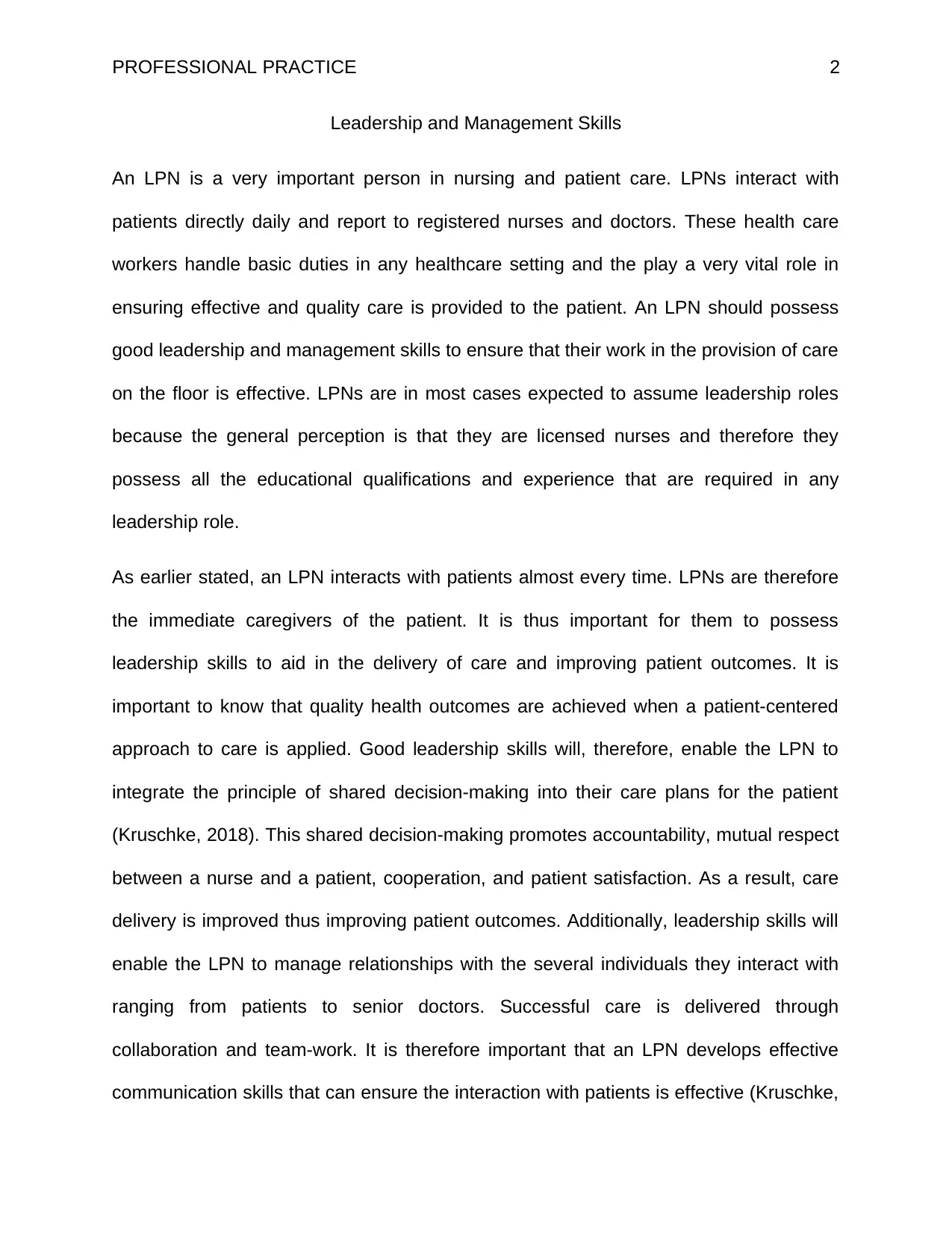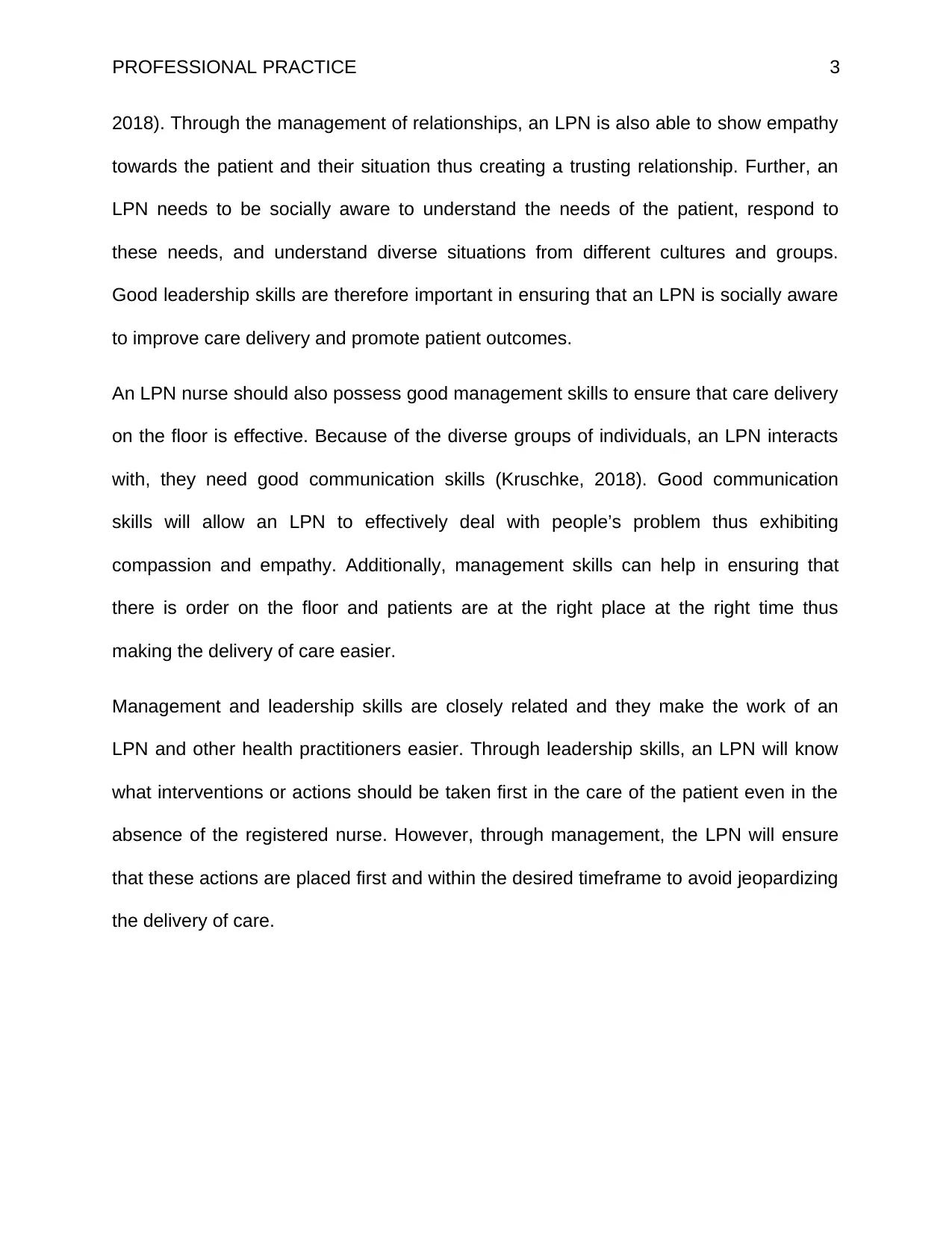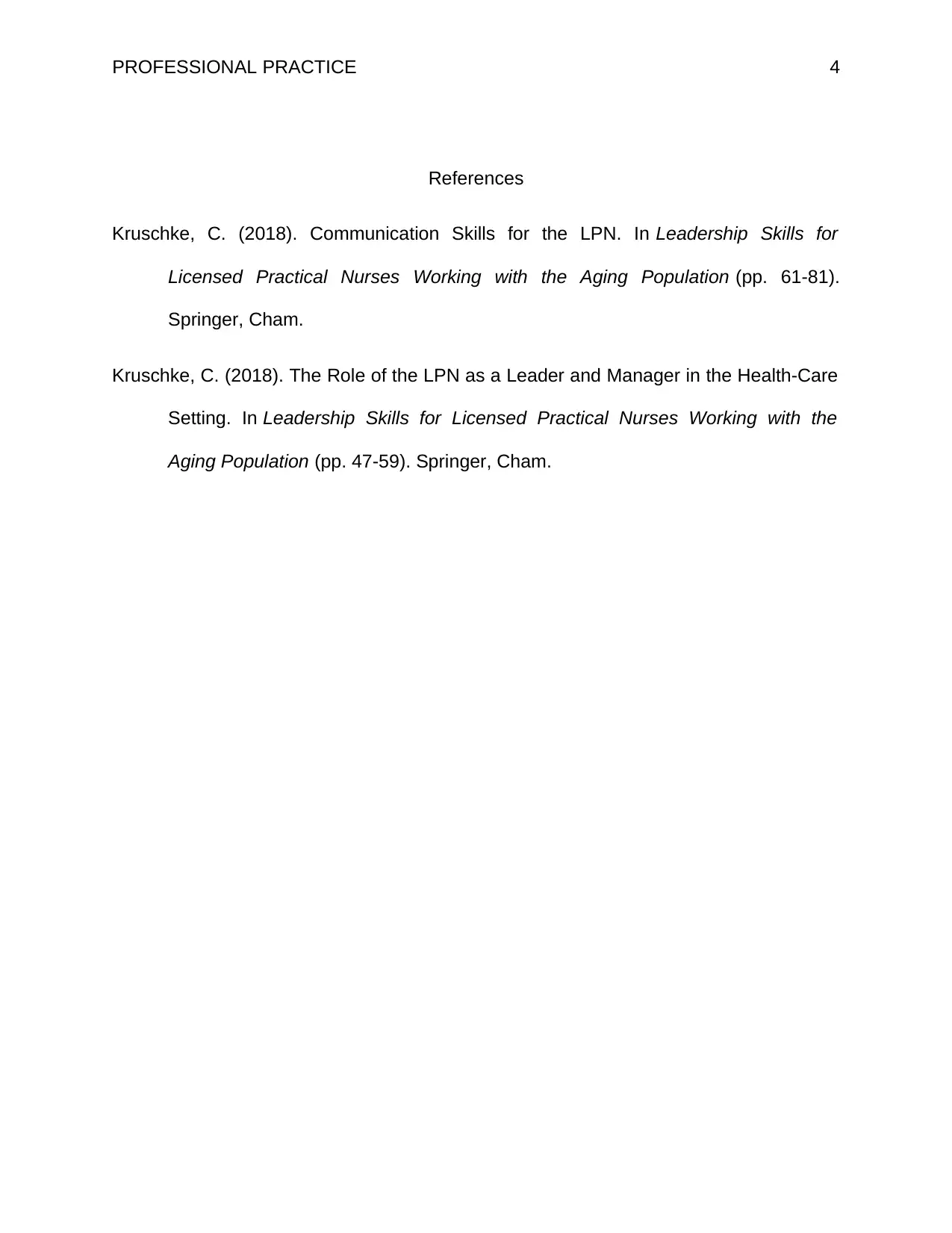The Role of Leadership and Management for LPNs in Healthcare
VerifiedAdded on 2022/09/14
|4
|666
|16
Report
AI Summary
This report examines the crucial leadership and management skills required for Licensed Practical Nurses (LPNs) in healthcare settings. It emphasizes the importance of these skills in enhancing patient care and improving health outcomes. The report highlights the need for LPNs to possess strong communication skills to effectively interact with patients, colleagues, and other healthcare professionals. Additionally, it stresses the significance of shared decision-making, empathy, and social awareness in providing quality care. The report also discusses how management skills contribute to maintaining order and efficiency in the healthcare environment. Ultimately, the report underscores the interconnectedness of leadership and management skills, demonstrating how they enable LPNs to make informed decisions, prioritize actions, and deliver timely and effective care. References from Kruschke (2018) are included to support the findings.
1 out of 4











![[object Object]](/_next/static/media/star-bottom.7253800d.svg)